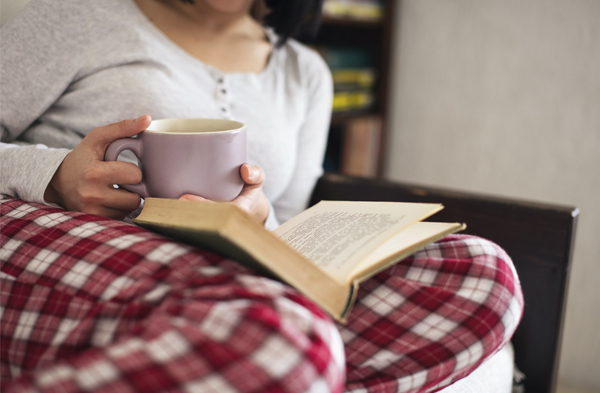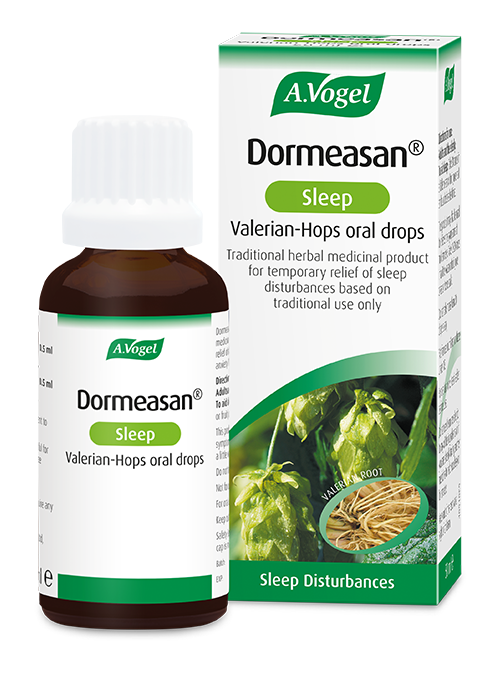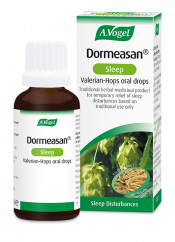Can sleep deprivation make you more sensitive to pain?
Sleep deprivation comes with quite a lot of baggage, but fatigue, mood swings and unhealthy food cravings might just be the tip of the iceberg according to recent research.
Normally, when it comes to pain and sleep, most studies tend to favour how pain can affect your sleep quality rather than vice-versa. However, a recent study published in PAIN®, an official publication linked to the International Association for the Study of Pain, has demonstrated that those who suffer from insomnia and other sleep related problems are more vulnerable to pain.
The study involved more than 10,400 adults and looked at testing pain sensitivity by having the participants submerge their hands in a cold water bath. The results found that 42% of participants with insomnia were more likely to take their hands out early compared to only 31% of the insomnia-free participants – 42% of participants did compared to only 31% of insomnia-free volunteers - and that pain sensitivity increased depending on the frequency and severity of their insomnia.1
This isn’t the only study to examine the relationship between sleep and pain though – earlier studies have hinted at the relationship between sleep and pain, with one study in 2006 finding that just one night of poor sleep had the potential to increase your sensitivity to pain.2
Okay, so a poor night of sleep isn’t helping your pain threshold but why does poor sleep cause this particular symptom? The answer could lie in the relationship between sleep deprivation and inflammation.
1https://www.sciencedaily.com/releases/2015/04/150430094131.htm
2https://www.ncbi.nlm.nih.gov/pubmed/16494081
Does sleep deprivation increase your vulnerability to inflammation?

Inflammation has earned something of a bad name in recent years, often being association with a range of health complaints, varying from arthritis to IBS.
Nevertheless, inflammation does play an important role in helping your body to fight off bacteria and viral infections.
When foreign pathogens enter your body and start harming your tissues, your body will trigger an inflammatory response, helping to isolate the pathogen and attract white blood cells which can then help the affected area to heal. As a result, the increased blood flow to the area can sometimes result in redness, swelling and stimulate nerves, causing pain.
In moderation, inflammation shouldn’t harm your body, but if an inflammatory reaction is constantly stimulated, it can lead to long-term or ‘chronic’ inflammation, which can be a problem. In cases of chronic inflammation, the white blood cells that usually swarm an affected area can sometimes start attacking healthy organs, tissues and cells leading to flare-ups in the cases of conditions like arthritis or fibromyalgia.
So how does sleep come into the picture?
Well, research has indicated that sleep deprivation can enhance pro-inflammatory cytokines – a type of protein that aids cell communication and stimulates the movement of inflammatory cells. One study found that losing sleep even for one night can trigger the cellular pathways that produce tissue-damaging inflammation.3
If you suffer from rheumatoid arthritis or fibromyalgia, this increased vulnerability to inflammation can play a big role in aggravating symptoms, provoking a pain response.
To make matters worse, research has also shown that sleep deprivation can impact how you respond to pain medication.

The study was conducted on mice and found that 5 consecutive days of moderate sleep deprivation was able to exacerbate pain sensitivity and that common painkillers had no efficacy in alleviating the effects of hypersensitivity induced by sleep loss.4
3https://www.sciencedaily.com/releases/2008/09/080902075211.htm
4https://www.medicalnewstoday.com/articles/317348.php
What can you do to combat inflammation?
1 – Get a good night’s sleep

It might seem like an obvious solution if you think poor sleep is at the root of your pain, but sometimes drifting off can be a challenge. Numerous factors can affect the quality of our sleep – stress, sugary foods, shift work – the list is endless!
There are, however, a few simple tips you can follow to help you unwind before bedtime. Try to avoid caffeine for at least 8 hours before your bedtime and instead focus on soothing herbal teas – lavender and chamomile infusions can be particularly useful here! Put away your electronic devices at least an hour before bedtime and try some soothing activities – have a nice hot soak in the bath or practice activities that exercise your brain.
If you do find yourself tossing and turning during the night, don’t stay in bed. Sometimes getting up and having a brief walk around can be more calming than desperately rolling around. You could also try a gentle combination of Valerian and Hops, which can help to gradually relax your body, allowing you to drift into a deep sleep without any of the groggy side effects associated with traditional sleep medicines.
A.Vogel Dormeasan Sleep Valerian-Hops Oral Drops | Sleeping Aid | Extracts of Fresh Valerian Root
£5.49 (15ml) In Stock Get it tomorrow, 5th July.
2 – Watch what you eat

It isn’t just sleep that can affect your sensitivity to inflammation – your diet can also play a critical role.
Indulging in processed foods, refined sugars and alcohol can negatively impact your symptoms as such foods make you more vulnerable to high cholesterol, weight gain and excess AGE production which can all play a role in chronic, low grad inflammation.
However, inflammation isn’t always tied to the foods you would expect – sometimes surprising foods can also increase your susceptibility to inflammation. That’s why it’s always worth knowing a bit more about the foods that can help – our nutritionist, Emma, speaks more about foods that can fight inflammation here. Hydration is also important too so make sure you’re drinking plenty of plain water throughout the day!
3 – Practice mindfulness

I’ve already spoken at length about the benefits of mindfulness when it comes to reducing your stress levels and promoting healthy sleep patterns in my blog ‘Is mindfulness the key to good night’s sleep?’
However, aside from being highly beneficial for your mood, research is also now highlighting how mindfulness can help when it comes to inflammation too!
A recent study has shown that mindfulness meditation may help to reduce levels of a key inflammation biomarker, interlukin-6. In this study, 35 high-stress adults were sent on a three day retreat with one half going to a retreat that focused on mindful meditation, whilst the other attended one without any focus on mindfulness. After the retreat, brain scans indicated that the mindfulness group had increased functional connectivity as well as lower blood levels of interleukin-6!5
The good news is that mindfulness is simple, easy and completely free to practice on your own, with apps such as Headspace or Calm being readily available, providing introductory lessons to help you get started.
5https://www.sciencealert.com/a-key-inflammation-marker-is-lower-in-people-who-meditate-research-finds
4 – Get moving

If your muscles and joints are aching or you’re feeling fatigued, the last thing you probably want to do is engage in physical activity.
However exercise, aside for having numerous benefits for your sleep patterns, can also help to combat inflammation. One study found that just 20 minutes of exercise a day could have positive anti-inflammatory effects.
In this experiment, 47 participants were asked to walk on a treadmill for 20 minutes at an intensity that suited their individual level of fitness. After the 20 minutes, blood samples were taken and it was found that exercise was able to promote an anti-inflammatory cellular response, reducing the cytokine TNF, a cytokine with pro-inflammatory properties.6
It’s important though, that you choose the type of exercise that is right for you. Hitting the gym for hours at a time might not being doing you the favours you imagine. If you suffer from joint pain, low impact exercise such as swimming or mindful stretching might be the way to go as it doesn’t put so much pressure on your joints.
Getting fit doesn’t have to be expensive either – just check out this video before from some ideas about exercises that you can do from the comfort of your own home!
6https://www.medicalnewstoday.com/articles/315255.php









